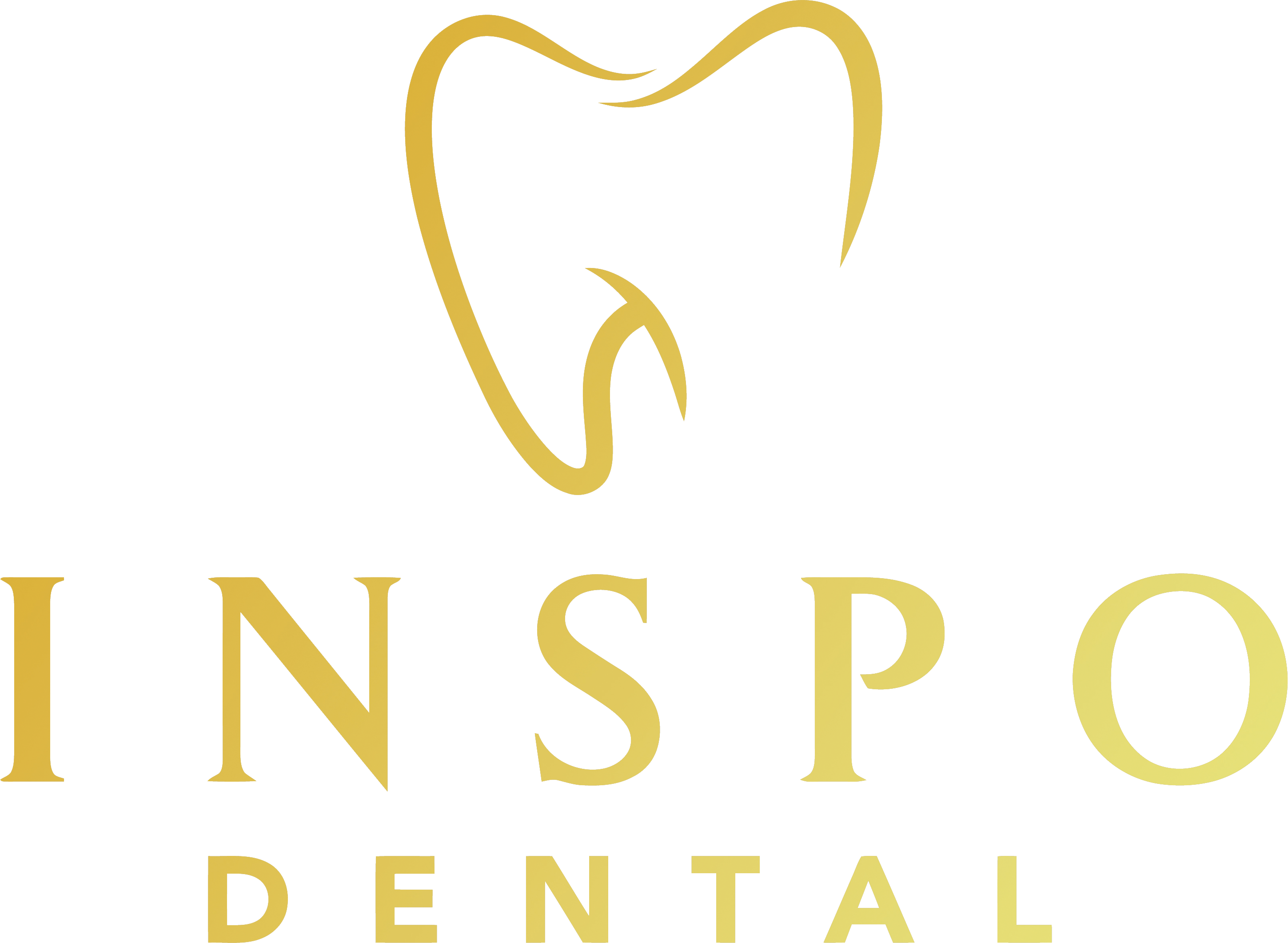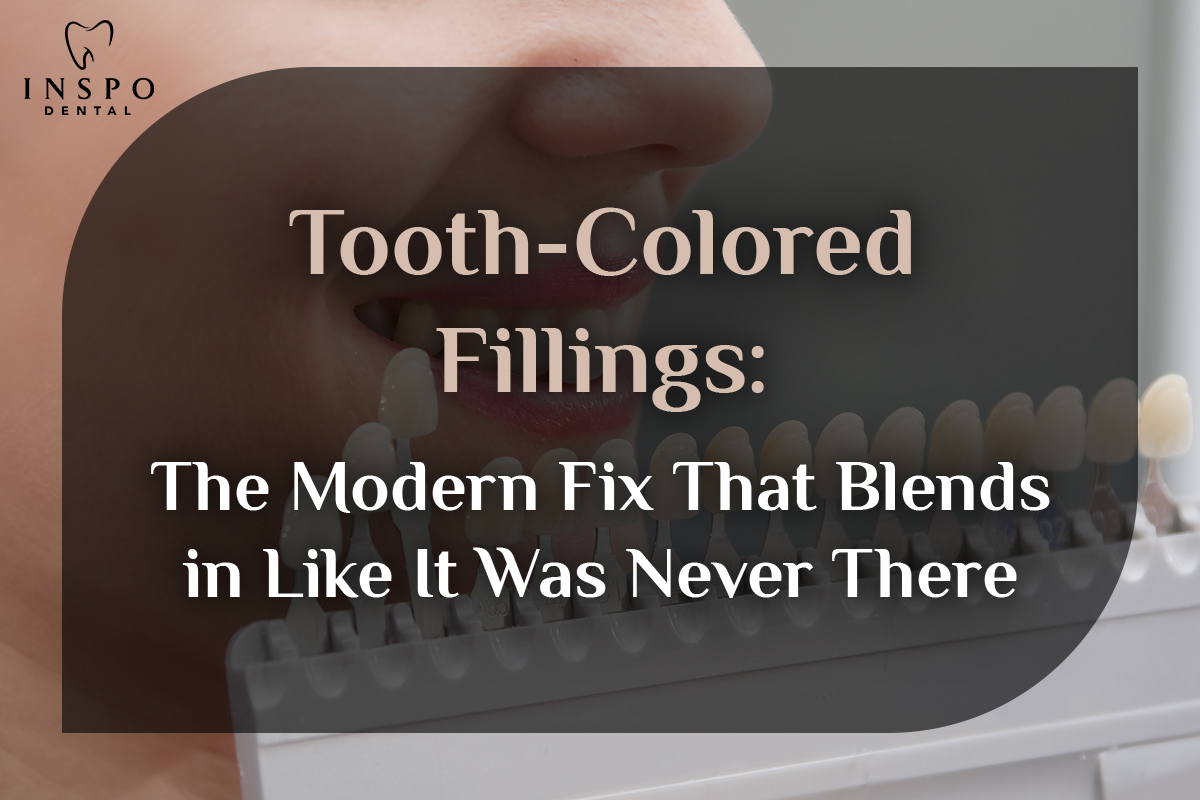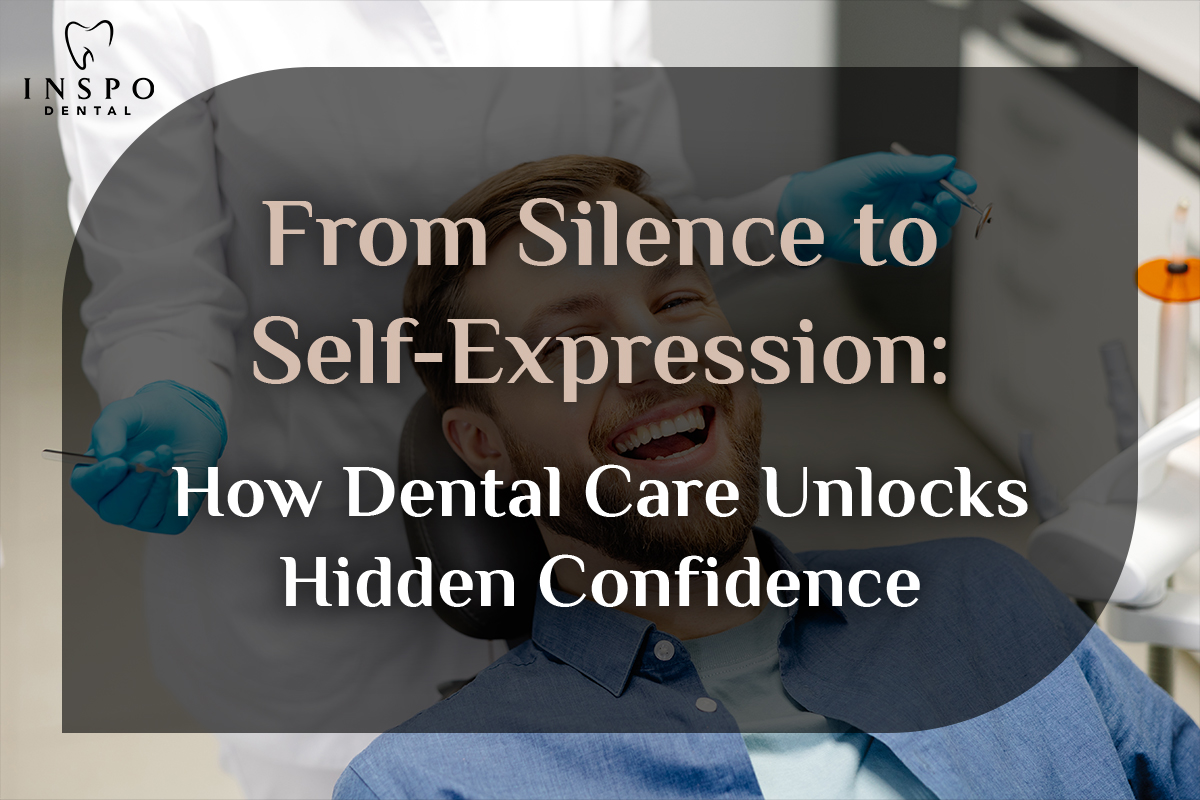Your teeth can reveal a lot about your overall health, acting as a window into what might be happening in other parts of your body. Here are some key things your teeth and oral health can indicate about your general well-being:
- Gum Disease and Heart Health
- Link to Heart Disease: Research has shown that people with gum disease (periodontitis) are at a higher risk of heart disease. The inflammation and bacteria associated with gum disease can contribute to the narrowing of arteries, increasing the risk of heart attacks and strokes.
- Tooth Erosion and Digestive Issues
- Acid Reflux: Erosion of tooth enamel can be a sign of acid reflux or GERD (gastroesophageal reflux disease). Stomach acids that reach the mouth can wear down the enamel, leading to sensitivity and decay.
- Bulimia: Frequent vomiting, as seen in conditions like bulimia, can also cause significant enamel erosion due to the acid from the stomach.
- Mouth Sores and Nutritional Deficiencies
- Vitamin Deficiencies: Sores or ulcers in the mouth can sometimes indicate deficiencies in certain vitamins, particularly B vitamins, iron, or zinc. A lack of these nutrients can lead to conditions like angular cheilitis (cracked corners of the mouth) or glossitis (inflammation of the tongue).
- Gum Inflammation and Diabetes
- Diabetes: People with diabetes are more prone to gum inflammation and infections due to high blood sugar levels, which can weaken the immune system. Persistent gum disease can also make it harder to control blood sugar levels, creating a vicious cycle.
- Dry Mouth and Medications
- Side Effects of Medications: Many medications, such as antihistamines, antidepressants, and blood pressure drugs, can cause dry mouth (xerostomia). A lack of saliva increases the risk of cavities, gum disease, and other oral infections.
- Autoimmune Disorders: Dry mouth can also be a symptom of autoimmune disorders like Sjogren’s syndrome, where the body’s immune system attacks the glands that produce saliva.
- Cracked or Worn Teeth and Stress
- Bruxism (Teeth Grinding): Cracked or worn-down teeth can be a sign of bruxism, a condition where you grind or clench your teeth, often linked to stress or anxiety. Chronic bruxism can lead to jaw pain, headaches, and even temporomandibular joint (TMJ) disorders.
- Oral Infections and Immune System Health
- Compromised Immunity: Frequent oral infections, such as thrush (a fungal infection), can indicate a weakened immune system. This could be due to underlying health conditions like HIV/AIDS, cancer treatments, or chronic illnesses.
- Bad Breath and Digestive or Respiratory Issues
- Halitosis: Persistent bad breath can be a sign of poor oral hygiene, but it can also indicate digestive issues like chronic acid reflux, infections like sinusitis, or even liver or kidney problems.
- Gum Color and Overall Health
- Pale or Bleeding Gums: Pale gums can be a sign of anemia, a condition where your body lacks enough red blood cells. Bleeding gums, especially when brushing or flossing, can indicate gum disease or a bleeding disorder.
- Oral Cancer Signs
- Unexplained Lesions or Lumps: Persistent sores, lumps, or white or red patches in the mouth can sometimes be signs of oral cancer. Early detection is crucial, so any unusual changes in the mouth should be evaluated by a dentist or doctor.
- Tooth Discoloration and Systemic Health
- Yellow or Brown Teeth: While tooth discoloration is often caused by external factors like smoking, coffee, or tea, it can also indicate internal health issues. For instance, certain antibiotics (like tetracycline) taken during childhood can cause teeth to develop a yellow or brownish hue. In adults, tooth discoloration might be linked to metabolic disorders or excessive fluoride exposure during tooth development.
- Blue or Gray Teeth: A bluish or gray tint to the teeth can be a sign of dental trauma, where the blood supply to the tooth is compromised. It can also indicate certain genetic conditions, like dentinogenesis imperfecta, which affects tooth development.
- Loose Teeth and Bone Health
- Osteoporosis: Loose teeth or receding gums can sometimes be a sign of osteoporosis, a condition that weakens bones and makes them more prone to fracture. The jawbone can be affected, leading to tooth loss or mobility. If you experience unexplained loose teeth, it’s important to consult both your dentist and a physician.
- Periodontal Disease: While loose teeth are often linked to periodontal (gum) disease, this condition itself can also be an indicator of systemic inflammation, which is associated with various chronic diseases such as rheumatoid arthritis.
- Mouth Ulcers and Immune Disorders
- Frequent Mouth Ulcers: Recurrent mouth ulcers, also known as canker sores, can sometimes be linked to autoimmune diseases such as lupus or Crohn’s disease. In these cases, the immune system mistakenly attacks healthy tissues, including those in the mouth, leading to painful sores.
- Gastrointestinal Issues: Chronic ulcers might also be a sign of gastrointestinal conditions like celiac disease or irritable bowel syndrome (IBS). These conditions can affect nutrient absorption, leading to deficiencies that manifest in the oral cavity.
- Swollen or Bleeding Gums and Vitamin Deficiencies
- Vitamin C Deficiency: Swollen, bleeding gums can be an indicator of a vitamin C deficiency, a condition known as scurvy. This was more common in the past but can still occur in individuals with very poor diets. Vitamin C is crucial for gum health and tissue repair.
- Vitamin D Deficiency: Vitamin D plays a role in calcium absorption and bone health, including the jawbone. A deficiency can lead to gum disease and tooth loss due to weakened bone structure supporting the teeth.
- Dry Mouth and Metabolic Disorders
- Diabetes: Chronic dry mouth is a common symptom of diabetes. High blood sugar levels can reduce saliva production, leading to a dry, uncomfortable mouth. This lack of saliva increases the risk of tooth decay, gum disease, and oral infections.
- Thyroid Disorders: Hypothyroidism and hyperthyroidism can also cause dry mouth. Thyroid hormones regulate many bodily functions, and an imbalance can lead to a reduction in saliva production.
- Cracking or Chipping Teeth and Dietary Habits
- Poor Nutrition: Teeth that crack or chip easily can be a sign of poor nutrition. Deficiencies in vitamins and minerals, particularly calcium and vitamin D, can weaken teeth, making them more prone to damage.
- Eating Disorders: Conditions like anorexia and bulimia can lead to significant nutritional deficiencies, which weaken the teeth and make them more susceptible to cracking and chipping. Bulimia, in particular, exposes teeth to stomach acid, which can erode enamel and lead to brittle teeth.
- Tooth Sensitivity and Health Conditions
- Tooth Decay or Gum Recession: Sensitivity to hot or cold foods and drinks is often an early sign of tooth decay or gum recession, where the protective layer of enamel is worn down or the gums pull back, exposing the sensitive inner parts of the tooth.
- Bruxism (Teeth Grinding): Chronic teeth grinding can wear down enamel, leading to sensitivity. This condition is often related to stress, anxiety, or sleep disorders, and addressing the underlying cause can help alleviate the symptoms.
- Jaw Pain and Cardiovascular Health
- Angina or Heart Attack: In some cases, unexplained jaw pain can be a warning sign of a heart attack or angina, particularly if it’s accompanied by other symptoms like chest pain, shortness of breath, or sweating. This is because the nerves that supply the heart also run through the jaw, so heart-related pain can sometimes be felt in the jaw.
- TMJ Disorders: Persistent jaw pain can also be a sign of temporomandibular joint (TMJ) disorders, which can be related to bruxism, arthritis, or jaw misalignment. Chronic stress and anxiety can exacerbate TMJ symptoms.
- Bad Breath and Underlying Conditions
- Liver or Kidney Disease: Chronic bad breath (halitosis) can sometimes indicate liver or kidney disease. These organs are responsible for filtering toxins from the blood, and when they are not functioning properly, these toxins can build up in the body and cause a foul odor in the breath.
- Diabetes: In people with diabetes, particularly if poorly managed, the body may produce ketones, which can cause a fruity or acetone-like odor on the breath. This can be a sign of diabetic ketoacidosis, a potentially life-threatening condition.
- Tooth and Bone Health Connection
- Hyperparathyroidism: This condition involves the overactivity of the parathyroid glands, which can lead to excessive calcium release from the bones, including the jawbone. This can result in loose teeth or bone pain and can be detected through dental x-rays.
- Osteonecrosis of the Jaw: This rare condition occurs when the jawbone starts to die due to a lack of blood supply. It can be associated with certain medications (like bisphosphonates used for osteoporosis) and may manifest as exposed bone, pain, or loose teeth.
- Teeth Grinding and Psychological Health
- Stress and Anxiety: Chronic teeth grinding, or bruxism, is often linked to psychological stress and anxiety. People who grind their teeth may do so unconsciously during the day or while sleeping, leading to worn-down enamel, increased tooth sensitivity, and jaw pain. Stress management techniques, such as mindfulness, therapy, or exercise, can help reduce bruxism.
- Sleep Disorders: Bruxism is also associated with sleep disorders such as sleep apnea. Individuals with obstructive sleep apnea (OSA) may grind their teeth as a response to interrupted breathing during sleep. Addressing the underlying sleep disorder can help alleviate the grinding and protect the teeth from further damage.
- Mouth Lesions and Cancer
- Oral Cancer: Persistent sores, lumps, or lesions in the mouth, especially those that do not heal within two weeks, could be a sign of oral cancer. Risk factors include smoking, excessive alcohol consumption, and human papillomavirus (HPV) infection. Early detection is crucial for effective treatment, so it’s important to have any unusual oral changes evaluated by a dentist or doctor.
- Leukoplakia: This condition involves the development of thick, white patches on the inside of the cheeks, gums, or tongue. While leukoplakia is usually benign, it can sometimes be precancerous. Regular monitoring by a healthcare provider is necessary to ensure it doesn’t progress to oral cancer.
- Pale Gums and Anemia
- Iron-Deficiency Anemia: Pale gums can be a sign of iron-deficiency anemia, where the body doesn’t have enough healthy red blood cells to carry oxygen to tissues. Anemia can also cause other symptoms like fatigue, weakness, and brittle nails. A simple blood test can confirm the diagnosis, and treatment typically involves dietary changes or iron supplements.
- Vitamin B12 Deficiency: A lack of vitamin B12 can also lead to anemia and cause pale gums, as well as other oral symptoms like a swollen, red tongue. Vitamin B12 deficiency is more common in vegetarians and older adults and can be treated with supplements or dietary adjustments.
- Bad Taste in Mouth and Metabolic Disorders
- Chronic Kidney Disease: A persistent metallic taste in the mouth can be a symptom of chronic kidney disease. As kidney function declines, waste products can build up in the blood, leading to a metallic or bitter taste in the mouth. This condition is often accompanied by other symptoms such as fatigue, swelling, and high blood pressure.
- Diabetes: A sweet or fruity taste in the mouth can be associated with diabetes, particularly if blood sugar levels are poorly controlled. This taste may be a result of ketones, which are produced when the body breaks down fat for energy instead of glucose. Managing blood sugar levels through diet, exercise, and medication is crucial for preventing complications.
- Gum Recession and Systemic Health
- Autoimmune Diseases: Gum recession, where the gums pull back from the teeth, exposing the roots, can be linked to autoimmune diseases like lupus or rheumatoid arthritis. In these conditions, the body’s immune system mistakenly attacks healthy tissues, including the gums, leading to inflammation and recession. Proper management of the underlying autoimmune condition can help protect oral health.
- Hormonal Changes: Hormonal changes during pregnancy, menopause, or puberty can also lead to gum recession. Increased hormone levels can make gums more sensitive and prone to inflammation, emphasizing the importance of maintaining good oral hygiene during these periods.
- Frequent Cavities and Dietary Habits
- High Sugar Intake: Frequent cavities can be a sign of a diet high in sugars and carbohydrates, which provide fuel for the bacteria that cause tooth decay. Limiting sugary foods and drinks, along with regular brushing and flossing, can help prevent cavities.
- Acidic Foods and Drinks: Consuming acidic foods and beverages, such as citrus fruits, soda, and wine, can erode tooth enamel, making teeth more susceptible to cavities. Rinsing your mouth with water after consuming acidic items and waiting before brushing can help protect your enamel.
- Loose Teeth and Hormonal Disorders
- Hyperthyroidism: This condition, where the thyroid gland produces too much thyroid hormone, can lead to bone loss in the jaw, resulting in loose teeth. Other symptoms of hyperthyroidism include weight loss, rapid heartbeat, and nervousness. Treatment may involve medication, radioactive iodine, or surgery to regulate thyroid hormone levels.
- Cushing’s Syndrome: Cushing’s syndrome, caused by prolonged exposure to high levels of cortisol, can also affect bone density, leading to loose teeth and other symptoms like high blood pressure, obesity, and thinning skin.
- Bleeding Gums and Cardiovascular Health
- Endocarditis: Bleeding gums can sometimes be an indicator of endocarditis, an infection of the inner lining of the heart. This condition can occur when bacteria from the mouth enter the bloodstream and attach to damaged areas of the heart. Individuals with gum disease are at higher risk, making good oral hygiene and regular dental visits crucial for prevention.
- High Blood Pressure: Some medications used to treat high blood pressure, such as calcium channel blockers, can cause gum swelling and bleeding. It’s important to inform your dentist of any medications you’re taking so they can provide appropriate care.
- Oral Health and Digestive Disorders
- Celiac Disease: This autoimmune disorder, triggered by gluten, can affect oral health by causing enamel defects, canker sores, and a dry mouth. These symptoms occur due to malabsorption of nutrients in the small intestine, which is damaged by gluten. A gluten-free diet is essential for managing celiac disease and improving oral health.
- Crohn’s Disease: This inflammatory bowel disease can cause various oral symptoms, including swelling of the gums, ulcers, and a condition known as “cobblestone” appearance of the oral mucosa. Managing Crohn’s disease with medication and diet can help alleviate these oral manifestations.
- Teeth Grinding and Neurological Health
- Parkinson’s Disease: Teeth grinding, or bruxism, can sometimes be associated with neurological conditions like Parkinson’s disease. The muscle rigidity and involuntary movements that characterize Parkinson’s can lead to bruxism, which may further contribute to jaw pain and tooth wear. Addressing the neurological condition with appropriate treatment can help reduce bruxism.
- Dystonia: This movement disorder, which causes muscles to contract uncontrollably, can also affect the jaw and lead to teeth grinding or clenching. Dystonia can be managed with medications, physical therapy, or, in some cases, surgery.
- Tongue Health and Nutritional Deficiencies
- Glossitis (Inflammation of the Tongue): A swollen, smooth, or red tongue can indicate various nutritional deficiencies, particularly a lack of iron, folic acid, or vitamin B12. These deficiencies can lead to a condition called glossitis, which can cause discomfort, difficulty swallowing, and changes in taste. Addressing these deficiencies through diet or supplements can improve both oral and overall health.
- Geographic Tongue: This benign condition, where the tongue develops map-like red patches with white borders, can sometimes be associated with nutritional deficiencies, stress, or hormonal changes. While usually harmless, if you notice persistent changes in your tongue’s appearance, it’s worth discussing with your healthcare provider.
- Oral Symptoms and Respiratory Conditions
- Chronic Sinusitis: Chronic sinus infections can lead to tooth pain, particularly in the upper molars, due to the proximity of the sinuses to the roots of these teeth. This pain is often mistaken for dental problems, but it can actually be a sign of an underlying sinus condition. Treating the sinusitis can alleviate the tooth pain.
- Mouth Breathing: Chronic mouth breathing, often due to nasal congestion or sleep apnea, can lead to dry mouth, gum disease, and increased risk of cavities. Addressing the underlying cause of mouth breathing, such as allergies or nasal obstructions, can help protect oral health.
- Enamel Hypoplasia and Developmental Issues
- Enamel Hypoplasia: This condition occurs when the enamel, the hard outer layer of the teeth, doesn’t form properly during development. It can result in thin, weak enamel that is more prone to decay and damage. Enamel hypoplasia can be caused by a variety of factors, including malnutrition during childhood, certain illnesses, or exposure to environmental toxins. Early dental intervention can help protect affected teeth.
- Genetic Conditions: Certain genetic conditions, such as amelogenesis imperfecta, can cause defects in the enamel. These conditions require specialized dental care to manage the symptoms and protect the teeth from further damage.
- Canker Sores and Immune System Health
- Recurrent Aphthous Stomatitis (Canker Sores): Frequent canker sores may be a sign of an underlying immune system issue or a response to stress, hormonal changes, or certain foods. In some cases, recurrent canker sores are associated with conditions like celiac disease, Crohn’s disease, or Behcet’s disease. Identifying and managing the underlying cause can reduce the frequency of outbreaks.
- Allergic Reactions: Canker sores can also result from allergic reactions to certain foods or oral hygiene products. Identifying and avoiding the allergen can help prevent future occurrences.
- Oral Health and Aging
- Tooth Loss and Aging: While tooth loss is often associated with aging, it’s not an inevitable part of getting older. However, age-related changes in bone density, gum health, and the cumulative effects of oral habits can increase the risk of tooth loss. Maintaining good oral hygiene, regular dental check-ups, and a healthy diet can help preserve your teeth as you age.
- Dry Mouth in Seniors: Many older adults experience dry mouth due to medications, reduced salivary gland function, or chronic conditions. Dry mouth can increase the risk of tooth decay and gum disease, so it’s important to manage the condition with increased hydration, saliva substitutes, or medications that stimulate saliva production.
- Metallic Taste and Systemic Conditions
- Taste Disorders: A persistent metallic taste in the mouth can be linked to various systemic conditions, including kidney disease, diabetes, or neurological disorders. It can also be a side effect of certain medications, such as antibiotics, blood pressure drugs, or chemotherapy. If you experience a metallic taste that doesn’t go away, it’s important to consult your healthcare provider for further evaluation.
- Mercury Poisoning: Although rare, mercury poisoning from environmental exposure or dental amalgam fillings can cause a metallic taste in the mouth, along with other symptoms like tremors, mood changes, and difficulty concentrating. Reducing exposure to mercury and seeking medical treatment can alleviate these symptoms.
- White Spots on Teeth and Fluorosis
- Dental Fluorosis: White spots or streaks on the teeth, especially in children, can be a sign of dental fluorosis. This condition occurs when there’s excessive fluoride intake during the early years of tooth development. While fluorosis usually doesn’t affect the health of the teeth, it can cause cosmetic concerns. Preventing fluorosis involves monitoring fluoride exposure, especially in young children.
- Calcium Deficiency: White spots on the teeth can also indicate areas of demineralization, where the enamel is losing calcium and becoming weaker. This can be an early sign of tooth decay and may require treatment with fluoride or other remineralizing agents.
- Red or Swollen Gums and Immune Disorders
- Gingivitis and Periodontitis: Red, swollen, or bleeding gums are often early signs of gingivitis, a mild form of gum disease. If left untreated, gingivitis can progress to periodontitis, a more severe form of gum disease that can lead to tooth loss and has been linked to systemic conditions like heart disease and diabetes. Good oral hygiene and regular dental care are essential for preventing and managing gum disease.
- Immune System Disorders: Conditions like lupus, HIV/AIDS, and other immune system disorders can cause red or swollen gums. In these cases, managing the underlying condition is crucial for maintaining oral health.
- Frequent Cavities and Systemic Health
- Salivary Gland Disorders: Saliva plays a key role in protecting teeth from decay by neutralizing acids and washing away food particles. Disorders that affect the salivary glands, such as Sjogren’s syndrome or radiation therapy for cancer, can lead to dry mouth and an increased risk of cavities. Managing dry mouth through hydration, saliva substitutes, and regular dental care can help prevent tooth decay.
- Uncontrolled Diabetes: People with uncontrolled diabetes are at a higher risk of developing cavities due to elevated blood sugar levels, which can increase the amount of sugar in saliva and promote the growth of decay-causing bacteria. Managing diabetes through diet, medication, and regular monitoring is important for both oral and overall health.
- Cracked Lips and Nutritional Deficiencies
- Angular Cheilitis: Cracked or sore corners of the mouth, known as angular cheilitis, can be caused by nutritional deficiencies, particularly of B vitamins, iron, or zinc. This condition can also result from fungal infections or habits like lip licking. Addressing the underlying cause through diet or antifungal treatments can help resolve the symptoms.
- Dehydration: Dry, cracked lips can also be a sign of dehydration, especially in colder weather. Staying hydrated and using lip balms that contain moisturizing ingredients can help prevent and treat cracked lips.
Conclusion
The health of your mouth, teeth, and gums is closely linked to your overall health, with many oral symptoms serving as indicators of underlying systemic conditions. Regular dental check-ups and good oral hygiene are essential for maintaining both your oral and general health. By paying attention to the signs that your teeth, gums, and mouth might be giving you, you can detect potential health issues early and seek appropriate care. Whether it’s a persistent dry mouth, recurring sores, or changes in the color or texture of your gums and teeth, these symptoms should not be ignored, as they may point to broader health concerns that need to be addressed by both your dentist and healthcare provider.






